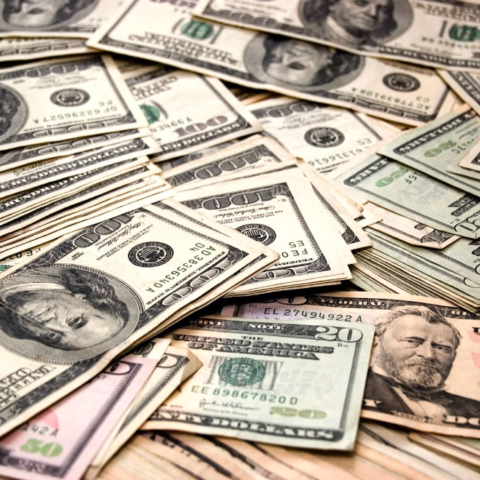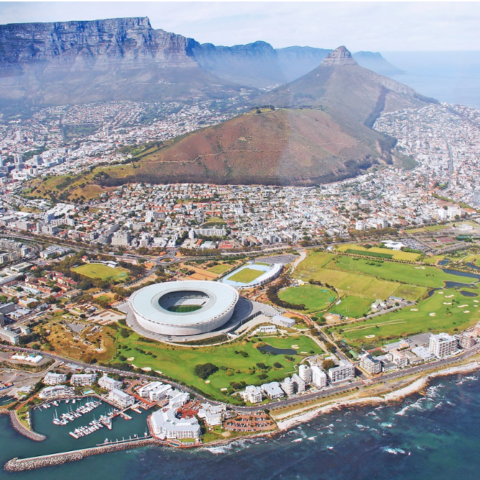By: Megan White
On Jan. 20, 2005, former U.S. President George W. Bush opened his second term with a lofty declaration: “It is the policy of the United States to seek and support the growth of democratic movements and institutions in every nation and culture, with the ultimate goal of ending tyranny in our world.”
With these words, Bush boiled down what has been both a direct and indirect mission of the United States for nearly 100 years. From the Wilson Doctrine to the Truman Doctrine to the Bush Doctrine, the promotion and spread of democracy has long been a cornerstone of American foreign policy. Whether that has meant kindling revolutions, propping up dictators, or tearing down walls, the United States has made a name for itself in the “free and fair elections” department.
Democracy, however, is not always the correct answer, both for the well being of the country in question and for the security interests of the United States. “Freedom” is not necessarily free.
In the simplest sense of the word, a democracy is a government in which the people hold the decision-making power. This power is typically deferred to popularly elected officials whose job is to represent the will of the people. The will of the people, however, often does not parallel the will of the United States and often does not parallel the long-term will of the people. History has taught this lesson time and time again in Nazi Germany, Iraq, Palestine, and Pakistan. But nowhere has this lesson resonated more than in post-Soviet Russia.
To many both in the United States and abroad, the fall of the Soviet Union signaled the triumph of capitalism, democracy, apple pie, and all things American. From that day forward, Russia would be a country where people would elect their leaders and freedom would ring from sea to shining sea.
A mere 20 years later, a grave mistake and a power-hungry leader have ignited the country into a sea of rage. Across the ocean, Americans can no longer hear the bells of freedom over the roar of Russians calling to end the rule of Vladimir Putin.
Russia, a country that was supposed to stand alongside the United States as a bastion of liberal democracy, is rapidly returning to where it was 20 years ago. And democracy played a sizable role in making it happen.
In 1993, the popular and charismatic Russian president Boris Yeltsin made history when he attacked the parliament. His intentions had been good. Upon assuming the presidency, he set out to solve the many problems that continued to plague the country’s political structure. In Yeltsin’s mind, solving these problems required him to work outside the limits of the constitution, so in the spring of 1993, he assigned himself a number of “special powers” necessary to implement his reforms.
These reforms entailed the dismissal of parliament, a new constitution and the consolidation of executive power. When the parliament, known as the Supreme Soviet, protested these reforms and attempted to remove Yeltsin from office, the president ordered tanks to shell the parliament building.
Although his popularity took a hit, Yeltsin was subsequently reelected, and his new constitution, which granted him the right to appoint the members of government, dismiss the prime minister and dissolve parliament, passed in a referendum.
Despite his apparent lack of concern for constitutional procedures and limits, Yeltsin remained the popular, democratically elected leader. In a 1997 article for Foreign Affairs, Fareed Zakaria stated, “ He may well be a liberal democrat at heart, but Yeltsin’s actions have created a Russian super-presidency. We can only hope his successor will not abuse it.”
In light of the anti-Putin protests erupting across the country following a fraudulent parliamentary election, it would appear that Zakaria’s hopes were not realized.
Without liberal institutions such as checks and balances, separation of powers, the rule of law and protection of individual rights, democracy can be the most dangerous form of government of all. Prone to radicalism, hyper-nationalism and war mongering, democracies become vehicles of the extreme. A little charisma is all it takes to launch a reign of tyranny. Yeltsin, the harbinger of democracy, essentially paved the way for Putin’s hold over Russia.
In order to fulfill Woodrow Wilson’s dream of making the world “safe for democracy,” the United States must first take on a policy of protecting the world from unsafe democracies. To best serve the security and ideological interests of the United States and the global community, establishing liberal institutions must take precedence over enacting free elections. Democracy without the limits of liberal constitutionalism, whether in Russia, Iraq or even the United States, only clears the path for abuse.

